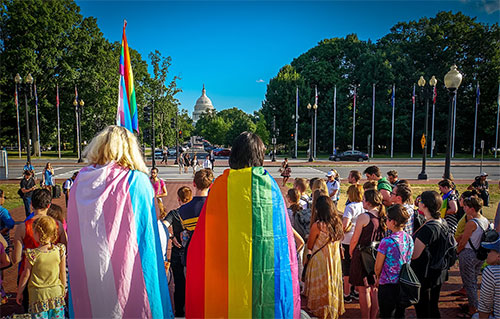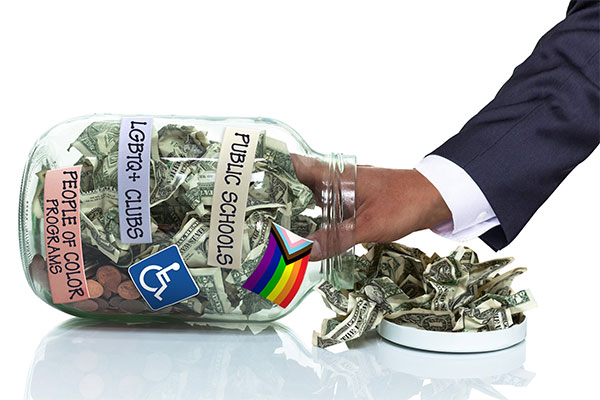Policy Position Statements
Policy Position Statements
Title IX at 50
Title IX of the Education Amendments of 1972 prohibits discrimination based on sex–including sexual orientation and gender identity–in federally funded education programs. However, LGBTQ+ students, and particularly those who are transgender, nonbinary, Black, Indigenous, people of color, and people with disabilities, continue to experience discrimination in our K-12 learning communities. GLSEN co-authored a new report, Title IX At 50, mapping out how far we’ve come and the work that remains to be done to deliver on the promise of Title IX through a series of issue briefs, including the GLSEN-led Issue Brief on LGBTQI+ Students.
LGBTQ+ Data Inclusion in K-12 Education Systems
Collecting data on LGBTQ+ issues and the experiences of LGBTQ+ young people is essential both for enforcing civil rights protections and advancing racial, gender, and disability justice outcomes in K-12 education systems across the country. This brief explains why we need LGBTQ+ data inclusion to ensure all students have access to safe and inclusive schools and provides policy recommendations for LGBTQ+ data inclusion at the federal, state, and local levels.
Gender Affirming & Inclusive Athletics
For all students, having the opportunity to participate in sports results in positive outcomes, including physical development, social skills, and psychological well-being. Transgender (trans) and nonbinary students should have the same access to athletic participation as their classmates. To ensure fairness and equality in athletic participation for all students, state athletic associations should develop guidance for local education agencies and schools that affirms and supports the right of trans and nonbinary students to participate in interscholastic and intramural sports. Check out our Issue Brief for more information.
Inclusive Curricular Standards
GLSEN supports statewide curricular standards that are inclusive of LGBTQ communities, persons with disabilities, communities of color, and all marginalized communities in alignment with its core mission. Inclusive curricular standards that support creation of inclusive curriculum at the local level can help strengthen educational attainment and health outcomes for LGBTQ students who see their full identities reflected in the classroom.
Our Inclusive Curricular Standards Issue Brief addresses the key questions and unique roles of statewide curricular standards, the positive impacts of inclusive curriculum, and supports that effectively implement policies in your schools.
Civil Rights School Climate Principles
Schools should be places of liberation where every student can thrive and reach their full potential. Three decades of GLSEN research documents the fact that LGBTQ+ students disproportionately experience school climates that are hostile to their overall well-being and educational attainment. This is especially true for LGBTQ+ students who are Black, Indigenous, people of color (BIPOC), transgender, nonbinary, and students with disabilities. All students deserve a K-12 education system that allows them to learn and grow free from harm. In order to achieve that goal, LGBTQ+ students must be afforded the equal opportunity to learn in a liberated and liberating school environment.
Private School Programs
The movement to use taxpayer funds to subsidize private school programs at the expense of the public education system continues to put LGBTQ+ students and educators, particularly those who are also Black, Indigenous, people of color (BIPOC), and people with disabilities, at greater risk. These programs primarily fund private religious schools that can sanction discrimination.

























